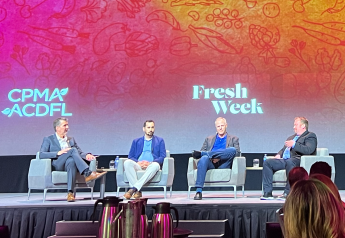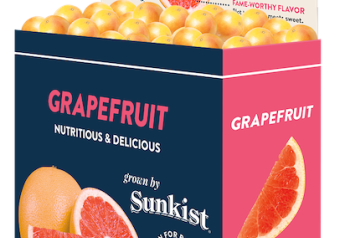Winning the information game

Does this sound familiar? You sit down to negotiate with your trading partner, perhaps to finalize a new annual contract or maybe just a weekly ad opportunity, and you think to yourself, “I’m as prepared as I’m ever going to be.” After all, you think, “I have the experience of past seasons and a pretty good memory.”
Then you’re blindsided. The person at the other end of the table starts talking specifics that you didn’t know. Average costs, market peaks and valleys, peak sizes, varietal start dates — it just keeps coming, and if you’re not prepared, it can be enough to make your head spin.
The kicker is, while your head is spinning, dollars and cents keep falling out of your side of the negotiation. When your counterpart across the table is more prepared than you and wins the “information game,” likely they’ll also win the “negotiation game.” This can spell trouble for both buyers and sellers negotiating in the produce markets.
My top rule for negotiating, discussed at my Negotiation Workshops, is “win at the information game.” Since you won’t have prior knowledge of how much information your counterpart will prepare, your best strategy is to be armed with as much information as possible. This requires a lot of preparation.
Finding time is only part of winning the information game; preparing the right information is also vital.
One of my workshop participants asked me once, “How much preparation is too much?” The answer lies in the amount you stand to gain by negotiating better.
If you’re looking for a few dozen weekly cases over a short time period, likely a dollar — plus or minus — won’t make or break you. But if you’re negotiating an annual contract for multiple loads per week, which is becoming more common in the industry, 50 cents per case can add up quickly.
With tens or even hundreds of thousands of dollars on the line, the question “How much preparation is too much?” quickly turns into “How can I find more hours to prepare?”
Finding time is only part of winning the information game; preparing the right information is also vital. Knowing seasonal start times, sizing, volumes, quality and historical costs is significant for buyers and sellers alike.
Internal data sources like company financial or sales records, post mortems and diary notes made to aid future negotiations are vital components of a good info packet. They can be supplemented with a good third-party source like the Produce Almanac to give an unbiased view of the produce markets.
Finally, armed with this information, the last step is to organize it for easy retrieval while at the negotiating table. Tables, charts, commentaries and other aids need to be simple to read and in a logical order. There is nothing worse than spending hours pulling data, creating reports and compiling feedback only to lose it in a mess of paperwork making it irretrievable when it is needed the most.
To recap, follow these three steps: find time, collect data, keep it organized and you can win at the “information game” helping you win the “negotiation game.”
Mike Mauti is the managing partner of Toronto-based Execulytics Consulting. E-mail him at mike@execulytics.ca.







